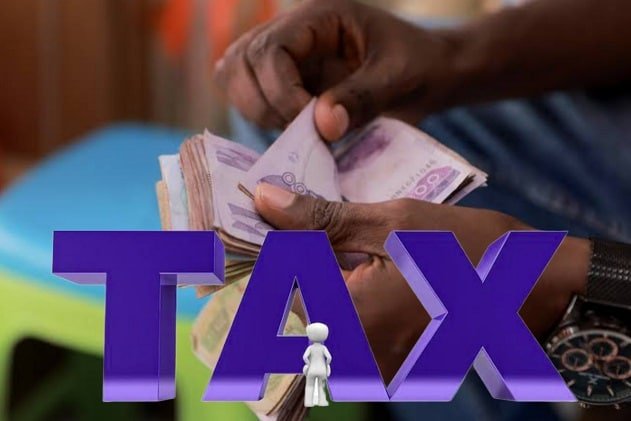Introduction
Managing all the facets of income tax can seem daunting, especially as rates and rules change every year. Both individuals and businesses in Ethiopia need to know what the income tax landscape will be like this coming 2024, so they can plan their finances sumosearch effectively. In the detailed analysis of this article on Ethiopian Income Tax rate table for 2024 will provide all necessary information (for employee, entrepreneur or anyone) to enable tax compliance.
What is Income Tax?
Income tax is a piece of the income that people and companies must provide to government bodies in lieu of revenue. Ethiopia has a progressive income tax system. Its ultimate aim is a fairer tax system in which greater earnings are taxed more to fund public services and infrastructure.
Ethiopian Income Tax Rate Table for 2024
Below is a summary of the income tax rates applicable in Ethiopia for the year 2024:
| Income Bracket (ETB) | Tax Rate (%) |
| 0 – 3,000 | 0 |
| 3,001 – 10,000 | 10 |
| 10,001 – 20,000 | 15 |
| 20,001 – 35,000 | 20 |
| 35,001 – 50,000 | 25 |
| 50,001 and above | 30 |
Breakdown of Tax Brackets
0 – 3,000 ETB:
No income tax is payable by individuals whose monthly wage does not exceed 3,000 ETB. This provision is intended to help low-income workers keep all of their pay.
3,001 – 10,000 ETB:
A 10% tax rate on those who end up earning between 3,001-10,000 ETB. Overall the charge is low to start with moving from being a tax exempt, at this point billed which helps individuals in adapting them for example their new duty duties.
10,001 – 20,000 ETB:
This bracket covers income that is taxed at 15%. It is a graduated tax, meaning people pay more as they make more.
20,001 – 35,000 ETB:
Someone who earns between 20,001 and 35,000 ETB is liable for a tax rate of twenty percent. Raising the tax rate equalizes contributions across income brackets.
35,001 – 50,000 ETB:
In this bracket, an income is taxed at a rate of 25%. This band is indicative of the government’s aim to not only make sure that those at upper income levels pay a much larger amount into funds for use nationwide.
50,001 ETB and above:
People earning more than 50,000 ETB will pay a rate of tax at 30%. The top bracket, therefore, highlights the progressiveness of Ethiopia’s income tax system–the fact that higher incomes have a heavier burden to carry in terms of taxes.
Tax Deductions and Credits Explained
What Are Tax Deductions?
Tax deductions are individual expenses you can subtract from your total income, thereby lowering the amount of income that is subject to taxes. For example, in Ethiopia people may claim deductions like;
- Medical expenses
- Educational expenses
- Retirement fund contributions
This is important, as it documents these expenditures for the record. This has the side benefit of reducing your taxable income.
Tax Credits
Directly Shrink Owed Taxes Tax credits lower the amount taxpayers owe government. For example, if you are entitled to a 1,000 ETB tax credit and you owe 5,000 ETB in taxes then your end-of-year tax liability will be reduced to only 4. Knowing what tax credits are out there can help reduce your overall income taxes, so be sure to explore any available credit for which you qualify.
Filing Requirements for 2024
Who Must File?
For instance, in Ethiopia everyone outside the tax-exempt bracket of 3,000 ETB is supposed to file an income tax return. This applies not just to payroll workers but also the self-employed and business owners.
Filing Deadlines
Usually, people ask to file their tax returns once a year and there are certain deadlines set by the Ethiopian Revenue & Customs Authority (ERCA). Staying on top of these dates is crucial to prevent late filing penalties.
How to File
You can file a tax return online or in person. The ERCA has meant online systems that streamline this process, making it handy for taxpayers to file their returns. Make sure you have all the required paperwork, like proof of income and any deductions or credits that you intend to claim.
Important Considerations
Changes in Tax Laws
The law, including tax laws, changes often. Staying up to date on new tax rate laws or changes is crucial. You should periodically visit the ERCA’s web site or consult a tax professional to keep current.
Consulting a Tax Professional
If you ever find the tax system confusing, or are unsure what your responsibilities to file accurate taxes as an OFW are column Unos I then suggest that turbo charge a *wink* Tax Professional and set yourself on them for guidance. They may offer advice made just for you, tax planning suggestions and assist in navigating deductions and credits as well as provide assurance that your taxes are filed in a timely manner.
Why Keep Accurate Records?
You will need to keep track of each individual dollar you make and spend. Maintain proper records: It makes filing the return easier, and could save you if your ever get audited by a taxman. Save a few filings of your tax returns, receipts and documentation for representing the deductions.
Conclusion
The Ethiopian Income Tax Rate Table for 2024 is necessary to be aware because it avoids many failures in financial planning. Learn the tax brackets, rates, and filing requirements to make sure you stay compliant with and how they can help save money. Don’t forget to look into deductions and credits, keep an eye on tax law changes, or get even more help when you need it.
Taking this active stance on your taxes, allows you to tackle what can be one of the hardest parts about managing money! So, stay educated and organized–and do not be afraid to ask for help if needed!



